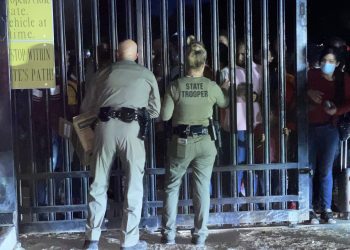DES MOINES, Iowa – An Iowa Senate subcommittee on Tuesday consisting of State Senators Jim Carlin, R-Sioux City, Claire Celsi, D-West Des Moines, and Brad Zaun, R-Urbandale, advanced SF 128, a bill that creates education savings accounts (ESA). Carlin and Zaun supported the bill, while Celsi opposed it.
The bill introduced by Carlin is one of at least two bills that will be introduced this session creating education savings accounts. Carlin’s version includes students who currently attend a non-public school. Under Governor Kim Reynolds’ proposal, a student would have to be enrolled in a public school the year before to be eligible. He said he was concerned about the trend of ESA bills considered in the Iowa Legislature just focusing on new non-public school students.
SF 128 does not place an income limitation on those eligible for an education savings account. However, Reynolds’ proposal requires students to be from families who have a household income that does not exceed 400 percent of the federal poverty level or students with an individualized educational plan.
Carlin’s bill designates 50 percent of the state’s per-pupil funding to set aside an account that families can use for qualified educational expenses. Reynolds proposed providing eligible students with 70 percent of the state’s per-pupil funding, with the remaining 30 percent going to small school districts.
Reynolds’ proposal caps the program at 10,000, whereas SF 128 does not provide a cap.
During the subcommittee, Carlin said he was concerned about student proficiency in public schools, particularly among minority students, and believed that Education Savings Accounts could be an answer.
“We have to get outside the box, look at other options, look at ways to raise the bar. Studies have shown that this type of option does indeed foster competition that raises the bar and that’s always going to be our goal,” he said.
Celsi, who opposed the bill, said student test scores and proficiency aren’t helped when the state’s English Language Learners (ELL) budget is funded “at a bare minimum.”
“And we’re underfunding our public schools. So I don’t think this will help,” she said.
Several public school lobbyists spoke against the bill expressing concern about spending public dollars on private schools.
“We believe that public money should stay with public entities with public schools,” Phil Jeneary with the Iowa Association of School Boards said.
He added he is concerned about transparency and accountability.
“Public schools are governed by a locally elected school board. We have public audits every year. And we have open meetings and records request that schools are under,” Jeneary said, noting that private schools don’t have that. “So where is the transparency? Where is the accountability there?”
Eric Goranson, the lobbyist for the Iowa Association of Christian Schools, said he supports the bill.
“I appreciate your comments on taking care of current families who are sacrificing a ton right now to choose the school and the environment that best meets the needs of their child,” he said.
Goranson noted that there is good language in the Iowa House and Governor’s proposals. “So we’re really grateful that you’re having the conversation. And we hope that at the end of the day, we can put them together,” he said.
Goranson also agreed that public schools should be adequately funded.
“Frankly, the vast majority of our neighbors are going to choose their neighborhood school, and we want them to succeed. We also want those parents who need something different to be empowered to have that option. And we appreciate you having that conversation,” he said.
Daniel Sunne with The FAMiLY Leader also said he supported the bill pointing to empirical studies that have shown improvement in student proficiency.
Keenan Crow with One Iowa said he was concerned about public money going to private religious schools that allow discrimination of LGBT students and families.
“Now, freedom of religion is one of our most important liberties here in the US, which is why it’s enshrined in our First Amendment. These non public schools have every right to teach the religious principles as they see fit. However, there’s nothing that obligates taxpayers to provide support for institutions that intend to permit discrimination,” he said.
Connie Ryan, the executive director of the Interfaith Alliance of Iowa, said public money shouldn’t go to religious schools.
“Public funds should not be used for religious ministry, and it should not be diverted away from public schools, the provider of education to over 92 percent of Iowa’s children, and it should not be given for private choices,” she said.















